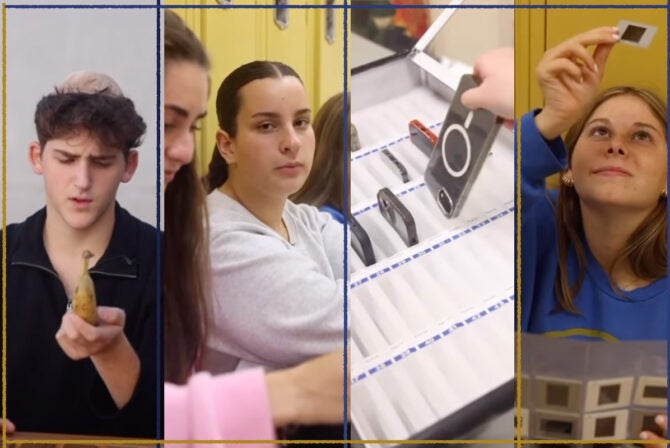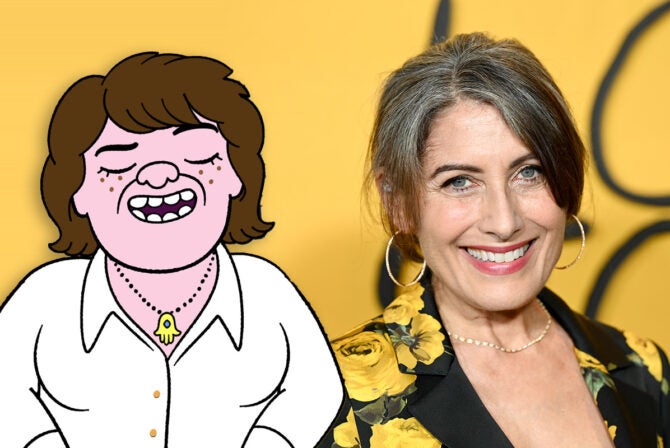ELIAS ROSENTHAL used to eat sugary cereals, orange soda and ice cream. For supper, he’d defrost a frozen enchilada before his ice cream. But after seeing Dr. Robert Lustig’s 60 Minutes interview “Sugar: The Bitter Truth,” he felt like he had to change his eating and thought patterns. And he had to help his friends and family do that too.
Elias credits Benjamin Franklin’s famous advice: “Tell me and I forget. Teach me and I remember. Involve me and I learn.” So Elias created Teens4Health.org, an organization that involves teens in learning health and fitness literacy. Soon after, Elias started Teens4Biz.org, a similar model improving teens’ financial literacy and developing leadership skills.
These two organizations reach out via social media, school clubs, field trips and engaging contests. So far, they’ve drawn in over 6,000 social media followers and Elias has been able to offer donations to Save a Child’s Heart in Israel, and Friendship House, California’s largest Native American center.
And he received one of the 2017 Diller Teen Tikkun Olam Awards–which is sweeter than any dessert we know.
Speaking with Elias Rosenthal:
Where did you grow up?
Oakland and Santa Rosa, California.
Can you tell me about that first time you watched Dr. Lustig’s interview?
After seeing Dr. Robert Lustig’s 60 Minutes interview “Sugar: The Bitter Truth” I learned some terrifying truths. I realized I was drowning in a sea of sugar and processed foods and sugary sodas. So were my friends and family. Dr. Lustig is a pediatric endocrinologist at University of California, San Francisco. I started reading his book, Fat Chance: Beating the Odds Against Sugar, Processed Food, Obesity, and Disease. I discovered sugar is more addictive than cocaine. The more I learned, the more I got inspired to start Teens4Health.org to educate myself and others to help end junk food madness.
How about the first time you came across Benjamin Franklin’s advice: “Tell me and I forget. Teach me and I remember. Involve me and I learn.”
Teens4Health.org and Teens4Biz.org are “Bottom-Up,” not “Top-Down” organizations. That’s Ben Franklin’s advice and what I learned from my mentor Dr. Lustig. I decided that by involving teens of all backgrounds, we’d wake up adults–our parents, teachers, school and camp cafeteria managers–who are feeding us processed foods and sugary drinks. Adults are fueling a growing global epidemic of teen diabetes and obesity.
What was your favorite junk food before watching “Sugar: The Bitter Truth”?
I loved French toast smothered in maple syrup, and sugary cold cereals. I gulped down orange soda and ice cream. There are four teenagers in the house and our parents work late. For dinner, we’d microwave frozen Costco foods–enchiladas to tacos.
What is your favorite food now?
Mango-coconut-almond milk smoothies and salmon omelets–watch my easy, tasty, healthy YouTube cooking videos on Teens4Health.org and YouTube. I made these cooking videos for survival–my family is cooking impaired. If I can cook, anyone can.
 What or who is your favorite thing to follow on social media?
What or who is your favorite thing to follow on social media?
Most teens are sleep-deprived. We spend more time on our devices (electronic heroin) than sleeping. I’ve tried to limit my screen time to posting–we have over 6,000 followers on our four social media accounts. Teens4Health.org and Teens4Biz.org each have Facebook and Twitter accounts and we send out information aimed to fit the interests of the followers, from health and fitness to financial fitness.
The “friends” on our two Facebook accounts are mostly teens from the U.S., Mexico, Israel and Taiwan. Many Teens4Health Twitter followers are parents, teachers, medical doctors, dietitians and nutritionists. A growing number are Spanish-speaking. A lot of our Teens4Biz Twitter followers are parents, financial and public speaking educators, and journalists.
What’s an average day like for you?
I’m a high school senior in Santa Rosa with a mountain of homework and too little time for sports. I’m busy cramming for the ACT test and filling out university applications.
Which came first–Teens4Health.org and Teens4Biz.org?
Teens4Health.org. We’re teens trying to educate ourselves and other teens about what junk foods and lack of fitness are doing to our bodies and brains. Armed with education, we next try to convince more teens and adults.
One reason I started Teens4Biz.org is for teens to learn how to follow the money to discover why unhealthy processed foods and addictive sugary sodas drinks are so profitable and addicting. Teens discover how international industrial “food” companies are fueling the obesity and diabetes epidemics by adding salt, sugar and unhealthy fats and other harmful (usually artificial) ingredients to their “foods.”
How did you initially spread the word about these ideas?
Social media, word of mouth and our two websites. Then contests, school clubs and field trips.
Your websites are chock full of reading and video resources – can you tell us how you compiled them?
Both our organizations are all-volunteer. Teens and adults suggest books and videos and useful links. It’s easy detective work–one cool movie, book or website leads to another. Some resources I discovered myself, such as “Shark Tank” and the film “Supersize Me.”
What about the hands-on programs and contests you run?
On field trips to places like supermarkets, fast food restaurants and our contests, we learn how to identify deceptively sugary foods and how companies pay for product placement. We discover how processed foods are magically (chemically) designed to last for months and how multi-billion dollar food, beverage, and restaurant businesses use clever ads and marketing to convince us to crave unhealthy foods and sugary drinks. It’s eye-opening when we learn to recognize deceptive food labels, misleading menus, and manipulative marketing messages.
What’s next for the Teens4Health and Teens4Biz campaign?
The Diller Teen Tikkun Olam Awards are a great incentive for me to continue growing both organizations, and attracting younger teens to join. Latino and Native American kids suffer America’s highest obesity and diabetes rates. We hope to offer more information in Spanish. On Twitter, we hope to keep building the number of Spanish speaking journalists and medical followers in the U.S. and Mexico.
How about you? After high school, any plans?
I hope I’m admitted to a good university (affordable, because we’re four college-age siblings). I’d like to study nursing, public health or maybe sports medicine.
How did it feel to get this honor from the Diller Foundation?
Overwhelming. It’s wonderful recognition for over five years building our two all-volunteer organizations.
This post is sponsored by the Helen Diller Family Foundation. To learn more about the foundation’s $36,000 Diller Teen Tikkun Olam Awards, visit www.dillerteenawards.org.







